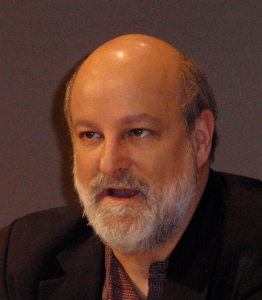What’s coming up on this week’s episode of the Deeper Waters Podcast? Let’s talk about it on Deeper Waters.
To begin with, for those who have not been able to hear the podcast lately, it’s through no fault of our own. The one who hosted our show decided that their ministry needed to be more focused towards youth and for some strange reason, Deeper Waters didn’t fit in with that. (We’ll see how much of that changes when these youth go to college and meet a Bart Ehrman type.) Fortunately, we have recently found a new host for our shown, the Universal Pentecostal Network. (Not affiliated with the denomination)
Anyway, what is coming up? Well this Saturday, we’re going to be interviewing one of the members of what has been called the first wave of apologetics and has been doing apologetics long before a number of us were even born. Many of us doing apologetics today owe what we do in part to my guest if not directly, then indirectly, seeing as he probably helped many others find out about the field. My guest is Dr. James Sire.
James W. Sire has retired as senior editor and campus lecturer for InterVarsity Christian Fellowship. He holds a Ph.D. in English from the University of Missouri (1964), an M.A. in English from Washington State University (1958) and a B.A. in Chemistry and English from the University of Nebraska (1955).
He served as an officer in the U. S. He has taught English, philosophy and theology at a number of universities, serving as associate professor of English at Nebraska Wesleyan University and Northern Illinois University. Over the past thirty years, he has taught short courses at the University of Delaware, Regent College (Vancouver), Wheaton Graduate School, Trinity Evangelical Divinity School, Biola University, University of the Nations, Evangelical Theological Seminary, Osijek, (Croatia), Biblical Theological Seminary, Wroclaw (Poland) and many other academic institutions in the U.S. and Europe.
Dr. Sire is the author of several books including The Universe Next Door,(now in its 5th edition; adopted as a text on worldviews in over 200 universities and seminaries; over 350,000 in print; translated into eighteen languages), Scripture Twisting, Discipleship of the Mind, Chris Chrisman Goes to College, Why Should Anyone Believe Anything at All?, Habits of the Mind: Intellectual Life as a Christian Calling, Václav Havel: The Intellectual Conscience of International Politics, Naming the Elephant: Worldview as a Concept,Learning to Pray Through the Psalms, Why Good Arguments Often Fail, A Little Handbook on Humble Apologetics, Praying the Psalms of Jesus,Deepest Differences: A Christian-Atheist Dialogue with Carl Peraino, and Rim of the Sandhills (eBook). His most recent publications are Echoes of a Voice: We Are Not Alone (May 2014) and Apologetics Beyond Reason: Why Seeing is Believing (August 2014).
He has lectured on over 250 university campuses in the U.S., Canada and Europe. During one typical academic year, Dr. Sire spoke on over 20 campuses in the U.S. and several in Croatia, Yugoslavia, Romania, Belgium and the Netherlands. His most recent lectures were sponsored by his Bulgarian publisher and given in June 2012 in Sofia. He has addressed groups of undergraduates, graduate students and faculty with talks that range from pre-evangelistic and evangelistic to academic and analytic on topics of interest to students and faculty in the arts, humanities, social sciences, natural sciences and technical fields.
He counts among his current interests (1) the application of worldview thinking to the integration of Christian faith and the academic disciplines (2) the critiques of worldview analysis as a major form of Christian critical thought and of understanding modern and ancient cultures and (3) the nature of signals of transcendence and their relation to Christian life, especially apologetics.
My first introduction to Sire came in Bible College when I was recommended to read Scripture Twisting and later for a class we were assigned as our textbook The Universe Next Door. That latter book has often been a textbook used in classes and is still to this day an excellent introduction to the subject of worldview thinking.
We’ll actually be talking about three books of his this time. We’ll be looking at the past with Rim of the Sandhills, then we’ll see why he still believes in Christianity today with looking at his book Echoes of a Voice, and finally see what he thinks we should be doing in the future with Apologetics Beyond Reason.
This is an interview I’m looking forward to to hear someone we could all see as a great mentor in apologetics. I hope you’ll be listening in. I will be recording from 3-5 PM EST this Saturday.
In Christ,
Nick Peters

